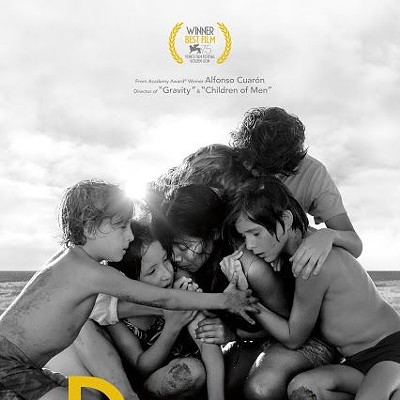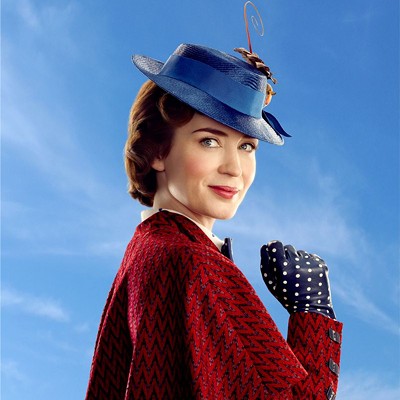Defiance
The landmark 1970s TV miniseries Holocaust and the 2002 theatrical release The Grey Zone both touched upon the topic, but Edward Zwick’s Defiance might be the first celluloid outing to focus exclusively on the efforts of Jews to violently oppose their Nazi oppressors during World War II. Certainly, it’s an overdue entry in the long history of Hollywood Holocaust flicks, but it’s a shame that such an intriguing story didn’t receive a more distinguished rendering. Adapted by Zwick and co-scripter Clayton Frohman from Nechama Tec’s fact-based novel Defiance: The Bielski Partisans, this centers on three siblings who battle the German threat from within the Belarus Forest. The eldest, Tuvia Bielski (Daniel Craig), is hardly a natural born leader but always manages to keep things in perspective. Middle son Zus (Liev Schreiber) is far more tempestuous, eventually breaking from his brother to fight alongside the Soviet Red Army. And youngest lad Asael (Jamie Bell) is initially a naÏve greenhorn but quickly gets his initiation under fire. The Bielskis soon earn a reputation for their guerilla tactics that keep the Nazis off balance, and before long, scores of other Jews join them in their forest sanctuary. But as their numbers grow, so does the risk of exposure, and Tuvia realizes it’s up to him to lead these people to safety. Zwick’s epics (Glory, Legends of the Fall, The Last Samurai) have never lacked for propulsive power, but Defiance is the first to constantly stumble over itself even as it tries to get its tale in gear. Still, Craig and Schreiber make for interesting contrasts in masculinity, and it’s at least commendable that somebody finally got around to paying tribute to these woodland warriors.
The Wrestler
After a brief reign of glory in the early 1980s, Mickey Rourke’s career went up in flames, thanks to personal problems as well as a tendency to pick dreadful material. A comeback via 2005’s Sin City failed to take root, but no matter: Rourke now has the role of a lifetime in Darren Aronofsky’s The Wrestler. On paper, The Wrestler sounds like Rocky reconfigured for the wrestling rather than boxing arena. But Robert Siegel’s screenplay fleshes out the basic storylines in unique ways, and Aronofsky and Rourke add a rich palette to the proceedings, resulting in a movie that’s frequently as colorful as it is meaningful. If Milk touches on America’s prejudices and The Dark Knight examines America’s fears, then The Wrestler explores America’s regrets. Rourke stars as Randy “The Ram” Robinson, who was quite the big deal in the wrestling world back in the 1980s. Twenty years forward, however, and Randy is now long past his glory days. Two decades of hard partying have wiped him out, and if he has any emotional reservoirs to tap, he wants to make sure to save them for the two women in his life. The first is Cassidy (an excellent Marisa Tomei), a stripper at the club he frequents who is always there to lend Randy a sympathetic ear (usually in the middle of a lap dance). The other female on Randy’s mind is his daughter Stephanie (Evan Rachel Wood); because he was never there for her while she was growing up. Yet much of the best material revolves around Randy’s career as a wrestler. Aronofsky and Siegel do a remarkable job of treating its practitioners with respect, so much so that it’s softened my stance toward these athletes (dare we call them artists?) who give so much of themselves for the entertainment of others.
Revolutionary Road
This reunites Titanic stars Leonardo DiCaprio and Kate Winslet, and they’re both exceptional in this adaptation of Richard Yates’ novel. Whether the film itself will satisfy moviegoers expecting to see the pair again in the throes of starry-eyed passion is another matter, since romance is kept at a minimum in this edgy drama, a must-see for adults who don’t mind getting their hands dirty on messy emotions. Sam Mendes, the Oscar-winning director of American Beauty, has made another American beauty, this one a powerful examination of a young couple trying to deal with the plasticity of 1950s suburbia. Set in Connecticut, the story (adapted by Justin Haythe) concerns itself with Frank and April Wheeler, who view themselves as being different from everyone else in their pristine neighborhood. But time spent toiling away within the boundaries of the so-called American dream quickly takes its toll, so in an effort to revitalize their dreams as well as salvage their marriage, April suggests that they move to Paris and start a new life. Flush with excitement, the couple start to make plans, only to find that old routines – no matter how detested – die hard. Those with a willingness for navel-gazing will be receptive to this material far more than those who prefer to keep blinders fully attached, but there’s no denying that Mendes and company have created an unsettling piece that gets under the skin. “You jump, I jump,” the lovers in Titanic told each other. Here, the two aren’t as united, each standing on the brink of uncertainty, peering into the dark abyss of an unknown future, and trying not to tumble into the chilly depths of American ennui.
Slumdog Millionaire
I’m not entirely sure how a film in which a small boy gets permanently blinded by someone deliberately pouring hot liquid onto his eyeballs while he’s unconscious ends up being hyped (by critics and audiences alike) as the “feel-good” movie of the year, but that’s the strange case with Slumdog Millionaire, the latest from director Danny Boyle (Trainspotting). The modern-day sequences find lanky, likable Jamal (Dev Patel) working his way through the questions on India’s version of Who Wants to Be a Millionaire? Jamal is a struggling kid who’s coped with poverty all of his life -- a “slumdog” -- and it’s his unlikely ascension that has the entire nation rooting for him to win it all. But Jamal isn’t doing this for money; he’s doing it for love -- namely, for the beautiful Latika (Freida Pinto), who, as we see in the film’s ample flashbacks, grew up on the streets alongside Jamal and his hotheaded brother Salim (Madhur Mittal). Initially, the movie’s structure is ingenious in how it feeds on incidents from Jamal’s past to allow him to get the right answers on the TV game show, suggesting that what’s most important in this life is what we learn firsthand. As for the sequences revolving around the characters’ rough childhoods, they’re refreshingly raw and uncompromising. It’s a shame, then, that Boyle and scripter Simon Beaufoy toss aside all innovation in order to bind the final half-hour into a straightjacket of rigid formula plotting.
Frost/Nixon
If all high school history classes were as grandly entertaining as the historical flicks penned by Peter Morgan, no student would ever again be caught slumbering in his seat. Morgan, who previously wrote The Queen, here adapts his own play, and together he and director Ron Howard open it up so that the end result feels much more vibrant than merely a constricted stage piece plunked do wn in front of a camera. Set after the Watergate scandal and Richard Nixon’s resignation, the picture concerns itself with the attempts of Nixon (Frank Langella) to rise Phoenix-like from the ashes of political irrelevance by holding a series of one-on-one interviews with British TV host David Frost (Michael Sheen). Nixon believes that he can easily exert control over this show biz personality, and he may be right, as Frost initially has trouble keeping up with his mentally agile interviewee. Several actors have played Tricky Dick on celluloid (Anthony Hopkins among them), but Langella bests them all with an riveting portrayal that goes beyond mimicry. He depicts the former president as a haunted man struggling to salvage his legacy, a scrappy fighter who refuses to yield even a square inch to his challengers.
Gran Torino
Clint Eastwood has stated that Gran Torino might mark his final appearance as an actor (he plans to keep directing), and if he sticks to his guns, it’s an appropriate way to end a magnificent career. In that respect, it brings to mind John Wayne’s swan song, the elegiac Western The Shootist (directed, incidentally, by Eastwood’s mentor Don Siegel), as both movies deal with aging men – the actors as well as the characters they’re portraying – whose lifelong dalliances with violence finally lead to both an understanding and acceptance of sorts. It’s not necessary to be familiar with Eastwood’s career arc to enjoy Gran Torino, but it does amplify the appreciation for the manner in which the topic of violence is approached. From the glorified gun battles in the Dirty Harry franchise to the ruminations about the impact of taking a man’s life in Unforgiven, Eastwood has clearly given much thought to the subject, and he takes another step with this latest picture. To describe how he has continued to modify his beliefs would spoil the film’s ending, but suffice to say that his character, Walt Kowalski, is no stranger to killing. A Korean War vet, the recently widowed Walt lives in a Detroit neighborhood in which he’s clearly in the minority. Surrounded by Asians, African-Americans and Latinos, he’s an unrepentant racist, although he doesn’t have much use for his own kind, either: Caring little for his two grown sons and their families, he instead prefers the company of his faithful dog and his prized 1972 Gran Torino. But his shell of indifference begins to crack once he comes into reluctant contact with the two Hmong kids who live next door, teenage siblings Thao and Sue (appealing newcomers Bee Vang and Ahney Her). Lazily dismissed in some camps as merely a simplistic riff on racism, Gran Torino is far more complicated than that, not only in its aforementioned exploration of violence but also in its affecting look at a rigid individual who slowly comes to realize that the world has moved on without him.
The Reader
Adapted from Bernhard Schlink’s bestseller, this arrives with all the obvious trappings of a year-end “prestige” picture. But since more time is spent exposing the milky white breasts of Kate Winslet than exposing the horrors of the Holocaust, viewers might be forgiven for thinking they stumbled into a big-budget remake of Ilsa, She Wolf of the SS. Winslet’s Hannah Schmitz is a streetcar conductor in post-WWII Germany who enters into an affair with 15-year-old Michael Berg (David Kross); as a form of sexual foreplay, she likes him to read to her from the classics. She soon drops out of his life, and it isn’t until a few years later, while he’s attending college, that she reappears -- as a former Nazi guard on trial for the atrocities she allegedly committed during the war. The Reader is a thorny story, and its failing isn’t because it elects to answer key questions about its characters in shocking fashion -- after all, many great movies are about less-than-admirable figures -- but because it waves off these revelations with all the impatience of a restaurant patron shooing away a waiter attempting to remove the soup bowl before it’s drained.
The Curious Case of Benjamin button
David Fincher’s The Curious Case of Benjamin Button is this year’s equivalent of Tim Burton’s Big Fish: a desperate lunge by a normally exciting genre-filmmaker to earn some year-end accolades. Drastically altering a short story by F. Scott Fitzgerald, scripters Eric Roth and Robin Swicord move the setting from Baltimore to New Orleans, thereby allowing the modern-day framing sequences to occur in the midst of Katrina. The bulk of the story deals with Benjamin Button (Brad Pitt), who’s born as an 80-year-old man but becomes gradually younger. Like the title character in Forrest Gump (a far more interesting film also written by Roth), Benjamin leads a rich and varied life, although his heart always belongs to Daisy (Cate Blanchett), who, like Forrest’s Jenny, is a callow free spirit who doesn’t realize the depths of her fondness for Benjamin until it’s almost too late.
Milk
The China Syndrome, Wall Street and even Casablanca are examples of movies that happened to be in the right place at the right time -- that is to say, life imitated art (or vice versa) as each picture’s release neatly dovetailed with real-life incidents that in one way or another mirrored what was happening on-screen. Milk follows suit: Although it’s set in the 1970s, it couldn’t possibly be more relevant. Harvey Milk (played by Sean Penn) was tired of homosexuals such as himself being treated as second-class citizens -- even in the supposedly liberal city of San Francisco, where he settled -- and he found himself drawn to political office as a way in which to fight for equality. It took several attempts, but he finally became the first openly gay person elected to public office in the U.S. His career ascendancy did not sit well with Dan White (Josh Brolin), the board’s most conservative member -- and, as it turned out, its most trigger-happy. The Oscar-winning 1984 documentary The Times of Harvey Milk offered a flawless look at the career of this passionate progressive, so it’s a testament to the richness of Gus Van Sant’s direction and Dustin Lance Black’s screenplay that this fictionalized version feels authentic in its every movement. As Milk, Penn delivers the performance of his career, and he’s backed by a superlative cast containing only one weak link: Diego Luna as Milk’s insecure lover, Jack Lira (James Franco fares much better as Harvey’s previous lover, Scott Smith). But this is a small misstep in an otherwise excellent production. Full of both passion and purpose, Milk is clearly one of the year’s best films. cs

























